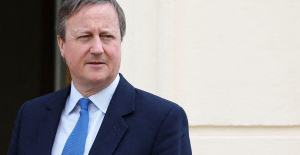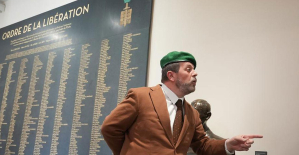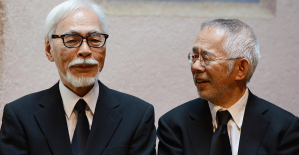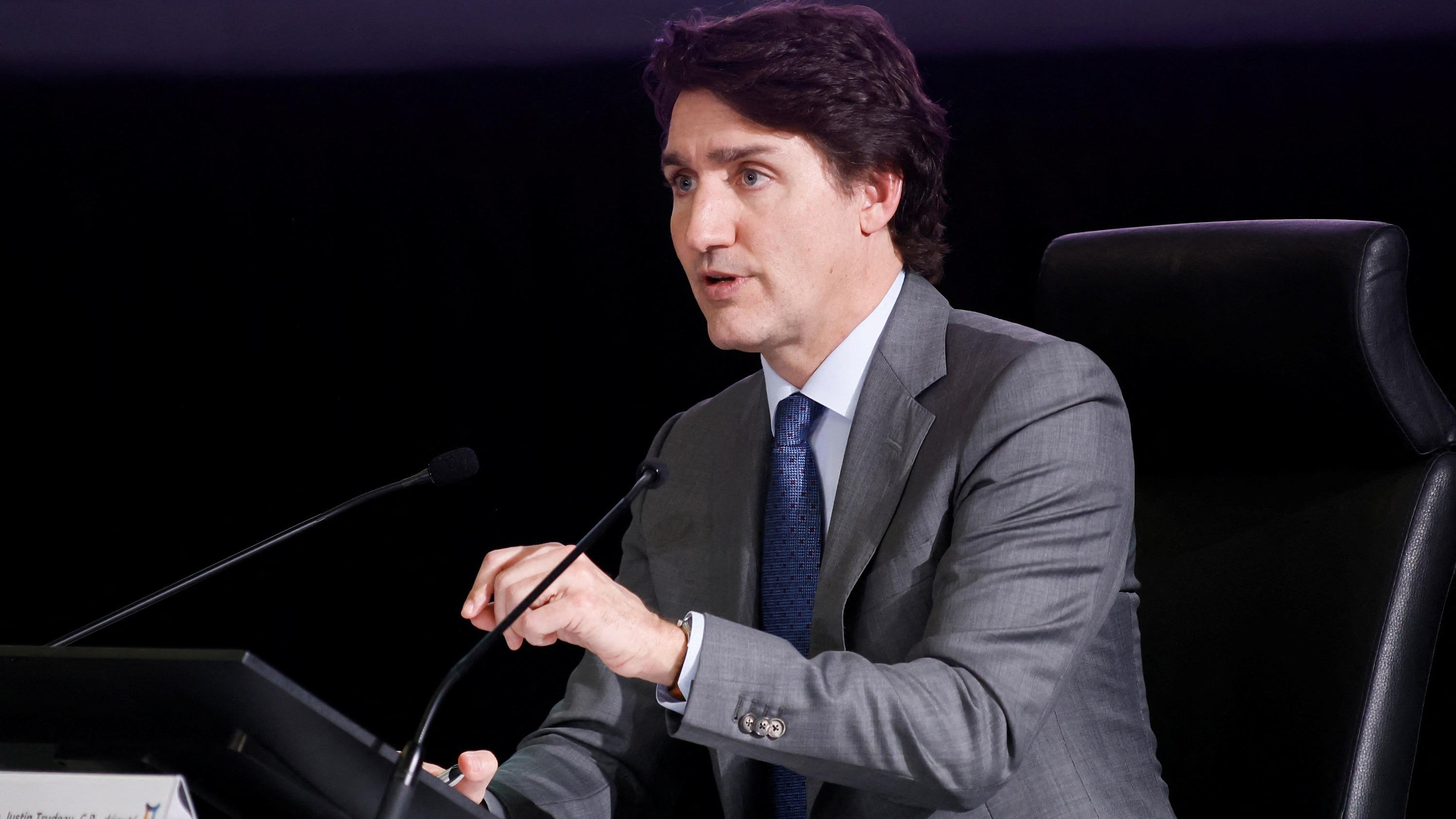The Centers for Disease Control and Prevention are being criticised for moving too quickly.
One year into Dr. Rochelle's tenure, Dr. Walensky's efforts to make the CDC more responsive are being challenged by vocal scientists, political pressures and the evolving virus. Experts say the agency has made numerous mistakes in its haste. It moved too fast, before the science was clear and then failed to communicate with the public.
"I believe they are trying to be more agile -- and that's good." "I don't think they are criticizing that," Dr. Georges Benjamin said, the executive director of American Public Health Association. "I think it's unfair that you have to do this fast in an ever-changing environment. You can't just make it public and assume that people will understand it.
Walensky stated that she was looking for ways to speed up data collection and reporting at the CDC. According to Walensky, she did not want the agency spending months collecting data that isn't useful. She said, "Like it's not important."
Last week, she spoke to the AP and said that she was proud of the achievements made by the agency in the last year. She cited a multitude of scientific reports from the CDC, quick identification of vaccine side effects, and rapid research into new variants.
Among her special points of pride was last spring's investigation by the CDC into rare, but worrying side effects in vaccine recipients. This included a blood clot in young female recipients of Johnson & Johnson shots. Out of over 8 million people who received the vaccine, the government identified 15 cases and stopped the administration of J&J shots for 11 consecutive days.
She stated, "Everyone knows that CDC must move faster during a pandemic." "I believe we did that."
However, her efforts have sometimes gone wrong.
Many were surprised by the agency's decision to reduce isolation and quarantine late last month. There were many questions raised by the public, including whether the guidance was applicable to children and why individuals didn't have to take a negative test before returning to work.
-- The CDC temporarily exaggerated the omicron variant’s penetration in the U.S. The CDC estimated that 73% of coronavirus-related infections in the United States were caused by omicron variants in mid-December. Based on additional data, the CDC reduced it to 23% a week later. (The CDC was a week ahead of schedule: Omicron is now in charge.
Walensky stated last spring that fully vaccinated persons could no longer wear masks in all settings. However, the course of events changed when the new delta variant was introduced.
Walensky has many supporters. These defenders say that core decisions were usually made in good faith at the time. They claim that the real problem was in how they were communicated and rolled out.
"WE MUST DO AN OVERHAUL"
The CDC is the U.S.'s crown jewel in public health. It has been regarded as a great institution with outstanding minds that work to find and prevent illness. However, it has been repeatedly criticised for being slow and timid in times of crisis.
Shelley Hearne is a John Hopkins University professor in health policy and management. She said that funding and authority are key factors in the problem. She pointed out, for instance, that the CDC cannot require states or doctors to report disease cases or any other vital information.
Hearne stated that Walensky will not change this.
She stated that "if the pandemic has taught us anything, it's this: we need to overhaul how we protect ourselves from our health."
The problem is made worse by the pressure from both Republican administrations and Democratic administrations on the CDC to work in harmony with Washington. This is not a new phenomenon, but other scientists and public-health experts are now second-guessing on social media.
Then there is the general fracture of the nation.
Benjamin of the American Public Health Association said that politicians and others have repeatedly undermined CDC's message. He said that CDC directors "hadn't had this kind of mischief in the past."
Too slow
The CDC took too long to send test kits out to state labs to identify coronavirus infection early in 2020. The kits were flawed in design and were contaminated.
CDC officials initially focused on the danger of infection spreading from China, but were slow to grasp how much coronavirus was coming out of Europe.
It was also criticised for not recommending masks to people, and failing to recognize the fact that the virus can spread through air. The agency should have increased systematic testing to identify new variants.
The Trump administration was charged with political interference in 2020 for controlling CDC messaging, which could contradict the White House's depiction of the crisis.
Walensky is an infectious-disease specialist and known for her communication skills. She pledged to restore trust in the public under President Joe Biden.
Walensky, who was CDC director for the past week, is celebrating his anniversary. However, the agency is still criticized for being slow at times.
The CDC updated its website last week to say that N95 masks are safer than others and better for most people. This is something scientists have known for a long time.
"So why has its direction come out late time and time again?" Lawrence Gostin (a Georgetown University public-health law expert) asked on Twitter.
Biden defended CDC Wednesday by stating: "The messages to the extent that they've been confused -- it's because scientists, they're still learning more."
Too Fast
Public health experts point out that the rapid-changing pandemic has caused the CDC to reverse some decisions that were sensible at the time but became problematic later.
One example: During the pandemic, the CDC advised Americans to wear masks whenever they were near others. Walensky, however, changed the guidance last spring and stated that fully vaccinated individuals could no longer cover up in all settings.
Walensky stated that the decision was driven primarily by increasing vaccination rates and declining COVID-19 hospitalizations, deaths and other health indicators. She described her call as an incentive to increase vaccinations.
She stated last week that if we hadn't followed the science at the time, and said that masks must stay on, we would have lost our credibility.
Nevertheless, senior officials in the administration and medical experts were surprised by the sudden change. They called it premature.
Within weeks, the new virus strain was triggered by the delta variant. The variant was spread by vaccinated individuals in Massachusetts in July. Walensky suggested that vaccinated persons return to wearing masks to protect themselves from the spreading virus.
She said that she saw data from Barnstable County on Friday. "We had new guidance on Tuesday."
Even Walensky supporters, public health officials, have complained about the way some CDC recommendations are communicated without thorough background briefings and documents that detail the scientific evidence.
Adriane Casalotti, National Association of County and City Health Officials, stated that in some cases local health officials may have been informed about changes to guidance through news reports and struggled with incorporating them.
According to one official of the CDC, they have become more cautious about notifying others before, as such information has been repeatedly leaked to the media.
This has led to another problem.
The agency reduced the recommended isolation time for Americans with coronavirus from 10 days to five days last month, providing they don't have any symptoms. States scrambled to find more information after the agency's sudden change.
"We had a 1-page media release" with a lot of unanswered queries, stated Dr. Natasha Bagdasarian (Michigan's chief medical executive), explaining why the state waited to adopt the CDC recommendations.
Walensky admitted that the recommendations were made too quickly, but said it was for a good reason.
She said that the agency already believed the change was justified, as research had shown that infectiousness is reduced within five days. Walensky felt the need to respond to growing reports that hospitals and other businesses were having difficulty maintaining staffing during the omicron surge.
She stated that with the forecasts of an explosion in infections, it was imperative to "act quickly" given the situation she was facing.
Some observers believe the CDC is stuck in a win-lose situation. It is criticized for waiting for medical evidence to build up, and criticized for acting quickly on limited data.
Hearne sympathizes.
She said, "No one is used watching a learning curve such as this." "This isn't normal."

 Rishi Sunak wants a tobacco-free UK
Rishi Sunak wants a tobacco-free UK In Africa, the number of millionaires will boom over the next ten years
In Africa, the number of millionaires will boom over the next ten years Iran's attack on Israel: these false, misleading images spreading on social networks
Iran's attack on Israel: these false, misleading images spreading on social networks Iran-Israel: David Cameron wants the G7 to impose “coordinated sanctions” on Iran
Iran-Israel: David Cameron wants the G7 to impose “coordinated sanctions” on Iran New generation mosquito nets prove much more effective against malaria
New generation mosquito nets prove much more effective against malaria Covid-19: everything you need to know about the new vaccination campaign which is starting
Covid-19: everything you need to know about the new vaccination campaign which is starting The best laptops of the moment boast artificial intelligence
The best laptops of the moment boast artificial intelligence Amazon invests 700 million in robotizing its warehouses in Europe
Amazon invests 700 million in robotizing its warehouses in Europe Solar panels: French manufacturer Systovi announces the cessation of its activities due to “Chinese dumping”
Solar panels: French manufacturer Systovi announces the cessation of its activities due to “Chinese dumping” Tesla: canceled in court, Musk's huge compensation plan will again be submitted to shareholders
Tesla: canceled in court, Musk's huge compensation plan will again be submitted to shareholders Two, three or a hundred euros: who are the most generous customers with tips?
Two, three or a hundred euros: who are the most generous customers with tips? Boeing safety examined in US Senate, after whistleblower's revelations
Boeing safety examined in US Senate, after whistleblower's revelations Immersion among the companions of the Liberation
Immersion among the companions of the Liberation Provence-Alpes-Côte d’Azur releases several hundred thousand euros for the promotion of the work of Marcel Pagnol
Provence-Alpes-Côte d’Azur releases several hundred thousand euros for the promotion of the work of Marcel Pagnol A palm of honor distinguishes Studios Ghibli for all of their work
A palm of honor distinguishes Studios Ghibli for all of their work Gaby, a new play by Pagnol adapted into a comic strip
Gaby, a new play by Pagnol adapted into a comic strip Skoda Kodiaq 2024: a 'beast' plug-in hybrid SUV
Skoda Kodiaq 2024: a 'beast' plug-in hybrid SUV Tesla launches a new Model Y with 600 km of autonomy at a "more accessible price"
Tesla launches a new Model Y with 600 km of autonomy at a "more accessible price" The 10 best-selling cars in March 2024 in Spain: sales fall due to Easter
The 10 best-selling cars in March 2024 in Spain: sales fall due to Easter A private jet company buys more than 100 flying cars
A private jet company buys more than 100 flying cars This is how housing prices have changed in Spain in the last decade
This is how housing prices have changed in Spain in the last decade The home mortgage firm drops 10% in January and interest soars to 3.46%
The home mortgage firm drops 10% in January and interest soars to 3.46% The jewel of the Rocío de Nagüeles urbanization: a dream villa in Marbella
The jewel of the Rocío de Nagüeles urbanization: a dream villa in Marbella Rental prices grow by 7.3% in February: where does it go up and where does it go down?
Rental prices grow by 7.3% in February: where does it go up and where does it go down? Europeans: the schedule of debates to follow between now and June 9
Europeans: the schedule of debates to follow between now and June 9 Europeans: “In France, there is a left and there is a right,” assures Bellamy
Europeans: “In France, there is a left and there is a right,” assures Bellamy During the night of the economy, the right points out the budgetary flaws of the macronie
During the night of the economy, the right points out the budgetary flaws of the macronie Europeans: Glucksmann denounces “Emmanuel Macron’s failure” in the face of Bardella’s success
Europeans: Glucksmann denounces “Emmanuel Macron’s failure” in the face of Bardella’s success These French cities that will boycott the World Cup in Qatar
These French cities that will boycott the World Cup in Qatar Union Bordeaux Bègles-Clermont: at what time and on which channel to follow the Top 14 clash?
Union Bordeaux Bègles-Clermont: at what time and on which channel to follow the Top 14 clash? Football: Ada Hegerberg extends at OL until 2027
Football: Ada Hegerberg extends at OL until 2027 Basketball: suspended for life from NBA for fixing his match
Basketball: suspended for life from NBA for fixing his match Paris 2024 Olympic Games: boxer Estelle Mossely wants to parade on the Seine as a flag bearer
Paris 2024 Olympic Games: boxer Estelle Mossely wants to parade on the Seine as a flag bearer


















